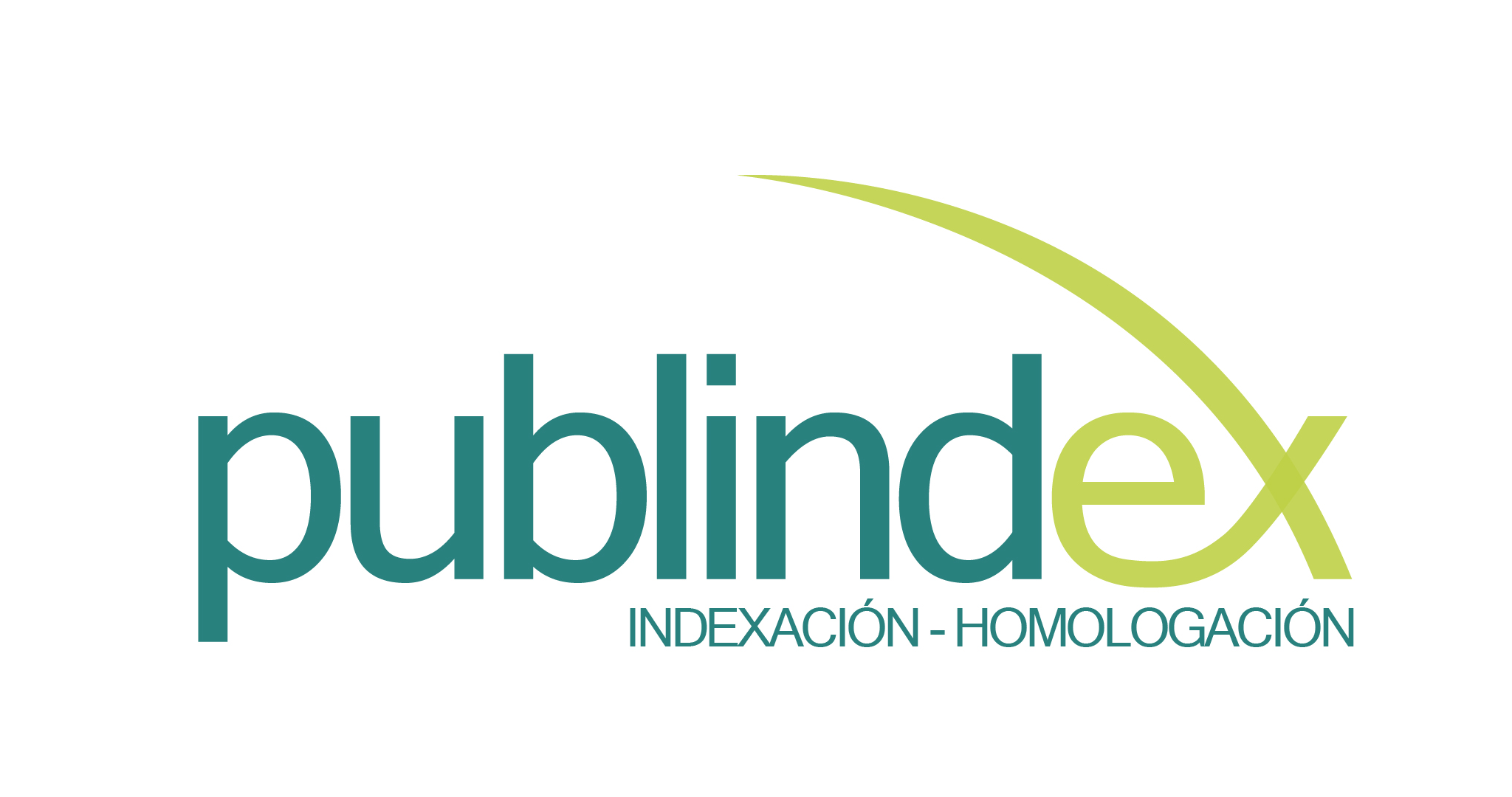Problemáticas y tendencias de la educación financiera
DOI:
https://doi.org/10.17981/econcuc.44.2.2023.Econ.3Palabras clave:
Educación Financiera, Socioeconómico, Finanzas personales , Finanzas del hogar , Bienestar y pobreza, Revisión Sistemática de Literatura (RSL)Resumen
La educación financiera es el proceso que permite a los individuos desarrollar competencias para la toma de decisiones financieras de forma eficiente en diferentes ámbitos de la vida. El objetivo de este estudio es sistematizar contribuciones, problemáticas y tendencias de investigaciones sobre educación financiera desde el ámbito social o económico. Esta revisión teórica utiliza un diseño cualitativo descriptivo documental con fuentes secundarias tipo artículo realizado de acuerdo con las pautas sugeridas por Tranfield, Denyer, & Smart (2003) para Revisiones Sistemáticas de Literatura (RSL). Los resultados muestran contribuciones de los autores en los siguientes ejes temáticos: comportamiento financiero, alfabetización financiera, sociodemográficos y de género, responsabilidad social empresarial y sostenibilidad, desempeño empresarial, emprendimiento y pobreza, finanzas digitales, gobierno corporativo, ética e inclusión financiera y finanzas del hogar.
Descargas
Citas
Abdallah, W. M. & Alnamri, M. (2015). Non-financial performance measures and the BSC of multinational companies with multi-cultural environment An empirical investigation. Cross Cultural Management, 22(4), 594–607. https://doi.org/10.1108/CCM-12-2013-0195
Abhishek & Saxena, R. (2016). Issues in measuring impact of a skill-building initiative for informal sector: a case of Nirman. DECISION, 43(4), 401–411. https://doi.org/10.1007/s40622-016-0136-2
Adeleke, R. (2021). Spatial variability of the predictors of government tax revenue in Nigeria. SN Business & Economics, 2(1), 1–20. https://doi.org/10.1007/s43546-021-00173-3
Agyapong, D. & Attram, A. B. (2019). Effect of owner-manager’s financial literacy on the performance of SMEs in the Cape Coast Metropolis in Ghana. Journal of Global Entrepreneurship Research, 9(1), 1–13. https://doi.org/10.1186/s40497-019-0191-1
Barros, T., Cárdenas, J. & Mendes-Da-Silva, W. (2021). The effect of interlocking directorates on mergers and acquisitions in Brazil. Journal of Management and Governance, 25(3), 811–839. https://doi.org/10.1007/s10997-020-09529-7
Birindelli, G., Ferretti, P., Intonti, M., & Iannuzzi, A. P. (2015). On the drivers of corporate social responsibility in banks: evidence from an ethical rating model. Journal of Management and Governance, 19(2), 303–340. https://doi.org/10.1007/s10997-013-9262-9
Bisogno, M. (2012). The Accessibility of the Italian Bankruptcy Procedures: An Empirical Analysis. Eurasian Business Review, 2(2), 1–24. https://doi.org/10.14208/BF03353810
Bouteska, A. & Mili, M. (2021). Women’s leadership impact on risks and financial performance in banking: evidence from the Southeast Asian Countries. Journal of Management and Governance, 26(4), 1213–1244. https://doi.org/10.1007/s10997-021-09594-6
Buergi, M. P. H. (2013). Pricing Contingent Convertibles: A General Framework for Application in Practice. Financial Markets and Portfolio Management, 27(1), 31–63. https://doi.org/10.1007/s11408-012-0203-4
Dragotă, V. & Ţilică, E. V. (2014). Market efficiency of the Post Communist East European stock markets. Central European Journal of Operations Research, 22(2), 307–337. https://doi.org/10.1007/s10100-013-0315-6
Gazel, M. & Schwienbacher, A. (2021). Entrepreneurial fintech clusters. Small Business Economics, 57(1), 883–903. https://doi.org/10.1007/s11187-020-00331-1
Gennari, F. & Salvioni, D. M. (2019). CSR committees on boards: the impact of the external country level factors. Journal of Management and Governance, 23(3), 759–785. https://doi.org/10.1007/s10997-018-9442-8
Gentry, J., Mehta, D., Bhattacharyya, S., Cobbaut, R. & Scaringella, J.-L. (1979). An International Study of Management Perceptions of the Working Capital Process. Journal of International Business Studies, 10(1), 28–38. https://doi. org/10.1057/palgrave.jibs.8490627
Goedde-Menke, M., Erner, C. & Oberste, M. (2017). Towards more sustainable debt attitudes and behaviors: the importance of basic economic skills. Journal of Business Economics, 87, 645–668. https://doi.org/10.1007/s11573-017-0854- 8
Haamukwanza, C. L. (2021). To insure or not to insure—the role that government and insurance practice should play: a thematic comparison of the urban poor and the workers in the pensions and insurance industry. SN Business & Economics, 1(9), 1–20. https://doi.org/10.1007/s43546-021-00121-1
Haddad, C. & Hornuf, L. (2018). The emergence of the global fintech market: Economic and technological determinants. Small business economics, 53(3), 81–105. https://doi.org/10.1007/s11187-018-9991-x
Herteliu, C., Jianu, I., Jianu, I., Bobb, V. C., Dhesi, G., Ceptureanu, S.-I., Ceptureanu, E. G. & Ausloos, M. (2021). Money’s importance from the religious perspective. Annals of Operations Research, 299, 375–399. https://doi.org/10.1007/s10479- 019-03488-5
Hoffmann, A. O. I. & Broekhuizen, T. L. J. (2009). Susceptibility to and impact of interpersonal influence in an investment context. Journal of the Academy of Marketing Science, 37, 488–503. https://doi.org/10.1007/s11747-008-0128-7
Hu, H. W., Cui, L. & Aulakh, P. S. (2019). State capitalism and performance persistence of business group-affiliated firms: A comparative study of China and India. Journal of International Business Studies, 50(2), 193–222. https:// doi.org/10.1057/s41267-018-0165-5
Huizingh, E. & Mulder, M. (2015). Effectiveness of regulatory interventions on firm behavior: a randomized field experiment with e-commerce firms. Small Business Economics, 45(4), 825–840. https://doi.org/10.1007/s11187-015-9666- 9
Hussain, M., Yahya, F. & Waqas, M. (2021). Does strong governance stimulate the effect of economic freedom and financial literacy on financial inclusion? a cross-country evidence. Future Business Journal, 7(1), 1–2. https://doi.org/10.1186/ s43093-021-00090-9
Kaserer, C., Mettler, A. & Obernberger, S. (2011). The Impact of the Sarbanes- Oxley Act on the Cost of Going Public. Business Research, 4, 125–147. https:// doi.org/10.1007/BF03342753
Khawar, S. & Sarwar, A. (2021). Financial literacy and financial behavior with the mediating effect of family financial socialization in the financial institutions of Lahore, Pakistan. Future Business Journal, 7(1), 1–11. https://doi.org/10.1186/ s43093-021-00064-x
Koestner, M., Loos, B., Meyer, S. & Hackethal, A. (2017). Do individual investors learn from their mistakes? Journal of Business Economics, 87, 669–703. https://doi.org/10.1007/s11573-017-0855-7
Königsheim, C., Lukas, M. & Nöth, M. (2017). Financial Knowledge, Risk Preferences, and the Demand for Digital Financial Services. Schmalenbach Business Review, 18, 343–375. https://doi.org/10.1007/s41464-017-0040-0
Kunz, J. & Heitz, M. (2021). Banks’ risk culture and management control systems: A systematic literature review. Journal of Management Control, 32(5), 439–493. https://doi.org/10.1007/s00187-021-00325-4
Kwan, C. C. Y. (2018). What really happens if the positive definiteness requirement on the covariance matrix of returns is relaxed in efficient portfolio selection? Financial Markets and Portfolio Managment, 32(1), 77–110. https://doi.org/10.1007/s11408-018-0306-7
Lagoarde-Segot, T. & Currie, W. L. (2018). Financialization and information technology: A multi-paradigmatic view of IT and finance – Part II. Journal of Information Technology, 33(1), 1–8. https://doi.org/10.1057/s41265-017-0045-7
Law, K. K. F. & Mills, L. F. (2017). Military experience and corporate tax avoidance. Review of Accounting Studies, 2(1), 141–184. https://doi.org/10.1007/s11142-016-9373-z
Lee, S.-H. & Workman, J. E. (2015). Compulsive buying and branding phenomena. Journal of Open Innovation: Technology, Market, and Complexity, 1(1), 1–12. https://doi.org/10.1186/s40852-015-0004-x
Lingyan, W., Mawenge, Rani, D. & Patil, S. (2021). Study on relationship between personal financial planning and financial literacy to stimulate economic advancement. Annals of Operation Research, 326(1), 11–11. https://doi.org/10.1007/s10479-021-04278-8
McGuinness, P. B., Lam, K. C. K. & Vieito, J. P. (2015). Gender and other major board characteristics in China: Explaining corporate dividend policy and governance. Asia Pacific Journal of Management, 32, 989–1038. https://doi.org/10.1007/s10490-015-9443-y
McKinnon, G., Smith, M. E. & Keith Hunt, H. (1985). Hoarding behavior among consumers: Conceptualization and marketing implications. Journal of the Academy Marketing Science, 13(2), 340–351. https://doi.org/10.1007/BF02729724
Mion, G. & Loza Adaui, C. R. (2020). Understanding the purpose of benefit corporations: an empirical study on the Italian case. International Journal of Corporate Social Responsibility, 5(1), 1–16. https://doi.org/10.1186/s40991-020-00050-6
Morelo, D. J. (2021). Estrategias didácticas para desarrollar un proceso de educación contable con enfoque de competencias en la Universidad Cooperativa de Colombia. En, A. Saavedra (ed.), Didáctica y prácticas docentes con base en competencias (pp. 206–285). Bogotá, D.C.: Ediciones Universidad Cooperativa de Colombia. https://doi.org/10.16925/9789587603156
Morelo, D. J. y Torres, D. (2021). Techniques and financial performance indicators applied to the income statement in Colombian commercial and service companies. Cuadernos de Contabilidad, 22, 1–21. https://doi.org/10.11144/javeriana.cc22. tirf
Mulchandani, K., Mulchandani, K. & Jasrotia, S. S. (2021). Does gender diversity on firm’s board affect dividend payouts? Evidence from India. Future Business Journal, 7(1), 1–11. https://doi.org/10.1186/s43093-021-00070-z
Müller, S. & Weber, M. (2010). Financial Literacy and Mutual Fund Investments: Who Buys Actively Managed Funds? Schmalenbach Business Review, 62, 126– 153. https://doi.org/10.1007/BF03396802
Nayyar, V. & Batra, R. (2020). Does online media self-regulate consumption behavior of INDIAN youth? International Review on Public and Nonprofit Marketing, 17(3), 277–288. https://doi.org/10.1007/s12208-020-00248-1
Osorio, A. E., Corradini, M. G. & Williams, J. D. (2013). Remediating food deserts, food swamps, and food brownfields: helping the poor access nutritious, safe, and affordable food. AMS Review, 3, 217–231. https://doi.org/10.1007/s13162- 013-0049-6
Pistoni, A., Songini, L. & Perrone, O. (2016). The how and why of a firm’s approach to CSR and sustainability: a case study of a large European company. Journal of Management & Governance, 20, 655–685. https://doi.org/10.1007/s10997- 015-9316-2
Pleßner, M. (2017). The disposition effect: a survey. Management Review Quarterly, 67(1), 1–30. https://doi.org/10.1007/s11301-017-0122-6
Rahman, M., Isa, C. R., Masud, M. M., Sarker, M. & Chowdhury, N. T. (2021). The role of financial behaviour, financial literacy, and financial stress in explaining the financial well-being of B40 group in Malaysia. Future Business Journal, 7(1), 1–18. https://doi.org/10.1186/s43093-021-00099-0
Ramsey, R. P. & Sohi, R. S. (1997). Listening to your customers: The impact of perceived salesperson listening behavior on relationship outcomes. Journal of the Academy of Marketing Science, 25(2), 127–137. https://doi.org/10.1007/ BF02894348
Ratner, R. K., Soman, D., Zauberman, Ariely, G. D., Carmon, Z., Keller, P. A., Kim, B. K., Lin, F., Malkoc, S., Small, D. A. & Wertenbroch, K. (2008). How behavioral decision research can enhance consumer welfare: From freedom of choice to paternalistic intervention. Marketing Letters, 19(3), 387–397. https:// doi.org/10.1007/s11002-008-9044-3
Ribaj, A. & Mexhuani, F. (2021). The impact of savings on economic growth in a developing country (the case of Kosovo). Journal of Innovation and Entrepreneurship, 10(1), 1–13. https://doi.org/10.1186/s13731-020-00140-6
Romero, F. (2015). A Cross-case Study on Corporate Social Responsibility (CSR) in the Philippines: A Comparative Analysis on Perspectives from the Top Banking Institutions in the Philippines from 2010-2014. GSTF Journal on Business Review (GBR), 4(2), 1–8. https://doi.org/10.7603/s40706-015-0017-2
Sarial‑Abi, G., Ulqinaku, A., Viglia, G. & Das, G. (2021). The effect of financial scarcity on discretionary spending, borrowing, and investing. Journal of the Academy of Marketing Science, 1–16. https://doi.org/10.1007/s11747-021-00811-0
Schmidt, A. (2017). Determinants of Corporate Voting – Evidence from a Large Survey of German Retail Investors. Schmalenbach Business Review, 18(1), 71–103. https://doi.org/10.1007/s41464-016-0024-5
Shih, T.-Y., & Ke, S.-C. (2014). Determinates of financial behavior: insights into consumer money attitudes and financial literacy. Service Business, 8, 217–238. https://doi.org/10.1007/s11628-013-0194-x
Stolper, O. A., & Walter, A. (2017). Financial literacy, financial advice, and financial behavior. Journal of Business Economics, 87(5), 581–643. https://doi.org/10.1007/s11573-017-0853-9
Tranfield, D., Denyer, D. & Smart, P. (2003). Towards a Methodology for Developing Evidence-Informed Management Knowledge by Means of Systematic Review. British Journal of Management, 14(3), 207–222. https://doi.org/10.1111/1467-8551.00375
Ughetto, E., Rossi, M., Audretsch, D. & Lehmann, E. E. (2020). Female entrepreneurship in the digital era. Small Business Economics, 55, 305–312. https://doi.org/10.1007/s11187-019-00298-8
Wu, J., Si, S. & Yan, H. (2020). Reducing poverty through the shared economy: creating inclusive entrepreneurship around institutional voids in China. Asian Business & Manage, 21, 155–183. https://doi.org/10.1057/s41291-020-00113-3

Publicado
Cómo citar
Número
Sección
Licencia
Derechos de autor 2023 Douglas Jahir Morelo Pereira, Deivi David Fuentes Doria:, Diocelina Torres Castro , Katia Rafaela Hoyos Núñez

Esta obra está bajo una licencia internacional Creative Commons Atribución-NoComercial-SinDerivadas 4.0.
Usted es libre de:
- Compartir — copiar y redistribuir el material en cualquier medio o formato
- La licenciante no puede revocar estas libertades en tanto usted siga los términos de la licencia
Bajo los siguientes términos:
- Atribución — Usted debe dar crédito de manera adecuada , brindar un enlace a la licencia, e indicar si se han realizado cambios . Puede hacerlo en cualquier forma razonable, pero no de forma tal que sugiera que usted o su uso tienen el apoyo de la licenciante.
- NoComercial — Usted no puede hacer uso del material con propósitos comerciales .
- SinDerivadas — Si remezcla, transforma o crea a partir del material, no podrá distribuir el material modificado.
- No hay restricciones adicionales — No puede aplicar términos legales ni medidas tecnológicas que restrinjan legalmente a otras a hacer cualquier uso permitido por la licencia.

 English
English
 Español (España)
Español (España)














